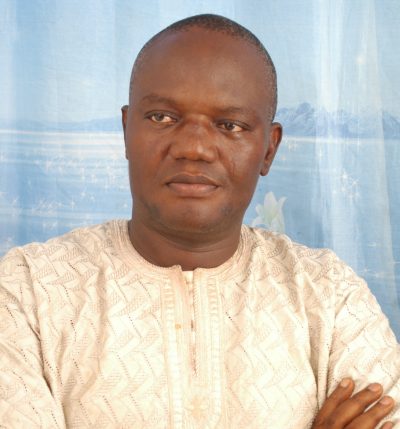 A spectre repeatedly haunts Nigeria’s democratic process and that’s the spectre of June 12. Two decades after monumental political injustice was inflicted on the country via an annulment of globally adjudged free and fair election; it has been countless political motions without real political movement.
A spectre repeatedly haunts Nigeria’s democratic process and that’s the spectre of June 12. Two decades after monumental political injustice was inflicted on the country via an annulment of globally adjudged free and fair election; it has been countless political motions without real political movement.
Echoes of the June 12, 1993 presidential election reverberated through out the nation last thursday. An observation on a matter of national importance was raised by conference delegate Orok Duke according to which the presumed winner of the historic election be accorded national honour in addition to a minute silence for all fallen heroes of the great struggles for democracy in 1990s. The plenary under the Chairmanship Justice Idris Kutigi eventually obliged the delegates to pay tributes to all those who died for Nigeria’s democracy including late Abiola with a minute silence.
The star contributor to the debate was the Elder statesman Edwin Clark representing the Elder statesmen, who argued that (but) for the “small mindedness of somebody” (his words), June 12 should have been the day the country should be observing as democracy day and not May 29! Witness him; “May 29 is because somebody came into office and decided to make it as democracy day in this country. June 12 is democracy day in Nigeria.”
Certainly not by accident the same day, June 12th last thurday, an important All Nigerian Political Parties and Political Stakeholders Summit was declared open by President Goodluck Jonathan at the International Conference Centre, Abuja . The spectre of June 12 hunted this historic conference that paraded political dignitaries the President himself and Jonathan, former military Heads of State, Abdusalami Abubakar, and Mohammadu Buhari as well the chieftains of all the political parties. The summit was jointly organised by the office of the Special Adviser to the President on Inter-Party Affairs and the office of the National Security Adviser.
All who spoke at the summit underlined the siginificane of June 12. The most incisive came from General Mohammadu Buhari. According to him, it was futile to find out and blame who annulled June 12 election adding that what was clear was that all Nigerians were losers in the electoral tragedy of 1993.
The historian, Eric Hobsbawm (1997) reminds us that: “History.. is literally the authority of the present”. There is no better validation of this insight than in Nigeria in which since 1993, Nigeria is hunted by the spectre of June 12 . Does anybody remember the characteristics of the presidential Abiola-kinbigbe ticket, namely; Muslim-Muslim, civilian-civilian, nation-wide mass votes, issue-driven campaign ad ifinitum? We today lament the intolerance and the impunity of politicians but this malaize assumed noteriety only after the criminal annulment of June 12 election. Annulment disorganized and factionalized the political class and divided the country dysfuntionally. Indeed all the speakers at the All Nigerian Political Parties and Political Stakeholders Summit took turn to condemn the current unguided utterances by contemporary politicians in the face of the challenges of insecurity the nation.
We today lament politically motivated killings, but the criminality only assumed notoriety from 1993. From Moshood Abiola, late Shehu Yar Adua to the judicial murder of Ken Saro Wiwa to Bola Ige, the victims are the products of the age of impunity with the origin in the annulment of June 12 elections.
The point cannot be overstated; The distortion of Nigeria’s democratic aspiration started with the criminal annulment of 1993 June 12 free and fair elections. Since the shameful events of 1993, election riggers had perfected the art of violations of peoples’ mandates through varying subterfuges that included ballot snatching,falsifications of election results as we witnessed in particular in 2003 and 2007 elections.
At the political stakeholders summit, Chairman of the Independent National Electoral Commission (INEC), Attahiru Jega, rightly faulted the habit of cross-carpeting by political office holders, saying anyone caught in the web of cross carpeting should automatically lose his/her seat. Again this impunity of carpet crossing started with annulment of June 12 election in the sense that one political immorality ( that the annulment was) led to cumulative political obscenity or political promiscuity as one speaker rightly shamed carpet crossing.
We must simply come to terms with the greatest blow to democratic process that annulment and political wastage of 1993 represented. If any dastardly singular impunity had been condoned what then stops other serial rascally serial minor or even advanced impunities? When the history of the struggle for democratic restoration in Nigeria is written the chapter on how political impunity of dictators begets more impunity will be worth reading.
We cannot decry injustice done to us when we callously deny others justice. Put in another way, the spectre of June 12 hunts until it is realised that the annulment was one monumental political injustice that should be decried and condemned and not rationalized. Only then we can prevent the re-enactment of this historic injustice in any forms that it manifests again.
Issa Aremu mni
June 12: A Recurring Spectre ,By Issa Aremu
Follow Us On WhatsApp



